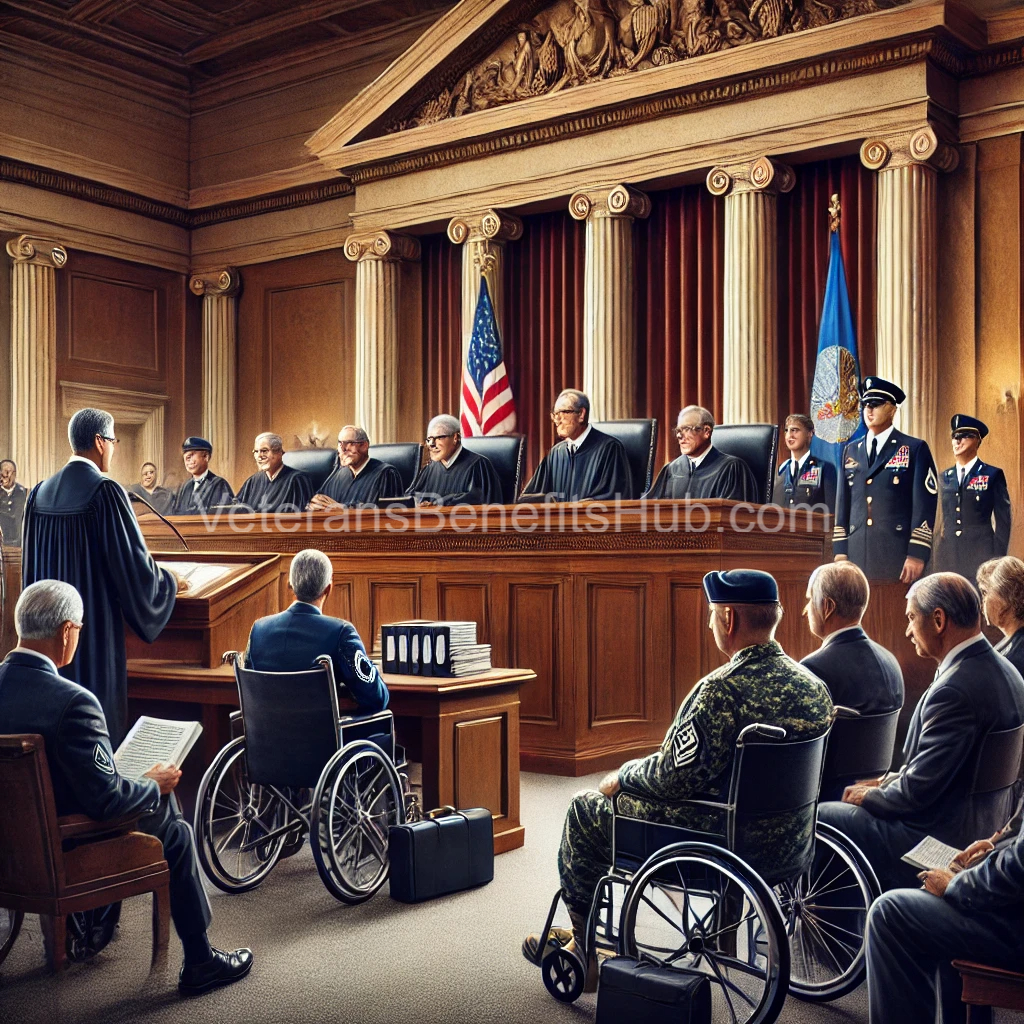
The U.S. Supreme Court recently heard arguments regarding how the Department of Veterans Affairs (VA) handles disability claims when the evidence for approval or denial is evenly balanced.
This case, Bufkin v. McDonough, involves the “benefit-of-the-doubt rule,” which mandates that when evidence is equally weighted, the decision should favor the veteran.
At the center of the case are veterans Joshua Bufkin and Norman Thornton, who filed separate disability claims that were denied, even though the supporting and opposing evidence was equally balanced. Bufkin, who served in the Air Force from 2005 to 2006, sought benefits for post-traumatic stress disorder (PTSD), but conflicting medical opinions led to his claim being denied. Thornton, an Army veteran who served from 1988 to 1991, was denied a higher disability rating for his service-connected injuries.
Their claims progressed to the U.S. Court of Appeals for Veterans Claims and later to the Federal Circuit, where the rulings were upheld. The veterans argue that the courts failed to consistently apply the benefit-of-the-doubt rule. Attorneys for Bufkin and Thornton pointed out that despite presenting equal evidence both for and against their claims, they were denied benefits.
The Supreme Court is now tasked with deciding whether the benefit-of-the-doubt rule should be uniformly applied in all cases, especially when evidence is closely balanced. A decision is expected next summer.
The veterans’ legal team contends that inconsistent application of the rule has harmed many veterans, with similar cases receiving contradictory rulings. They argue that this inconsistency has denied veterans the benefits they rightfully earned. The case raises questions about the fairness and consistency of the veterans’ claims process, especially for veterans who represent themselves in court.
On the other side, the VA’s attorneys have described enforcing the benefit-of-the-doubt rule as unnecessary, arguing that it could create redundant work for the veterans appeals court. However, advocates for veterans, including several organizations that filed supporting briefs, argue that this rule is a vital part of the VA’s review process, ensuring that veterans receive the benefits they deserve when the evidence is inconclusive.
The case underscores the ongoing debate over how the VA and the courts handle veterans’ claims, and its outcome could have far-reaching implications for veterans seeking disability benefits in the future.
Source: stripes.com
